Despite a slow start, by the mid-eighties, the band’s hit singles “Keep On Loving You” and “Can’t Fight This Feeling” had topped the charts, and they were known across the globe.
Although the members of REO Speedwagon long considered themselves a high-energy rock band, they will be remembered forevermore as masters of the power ballad.
Here, take a look back at the ups and downs of the career of this American rock group, with interviews and insights from the ’70s and ’80s.
Making a name: REO Speedwagon hits roadway to success (1977)
By Richard Sherwood, Valley News-Sun (Van Nuys, California) April 10, 1977
Music is a funny kind of business. For some bands, success comes overnight. For others, however, the wait can last for years.
Take, for example, the biography of REO Speedwagon.
The group that formed in Chicago played the mid-’60s clubs dates for some time, then branched out into the concert circuit throughout the Midwest.
At one time, REO was part of a four-billed show which also included Bob Seger, Ted Nugent and Styx.
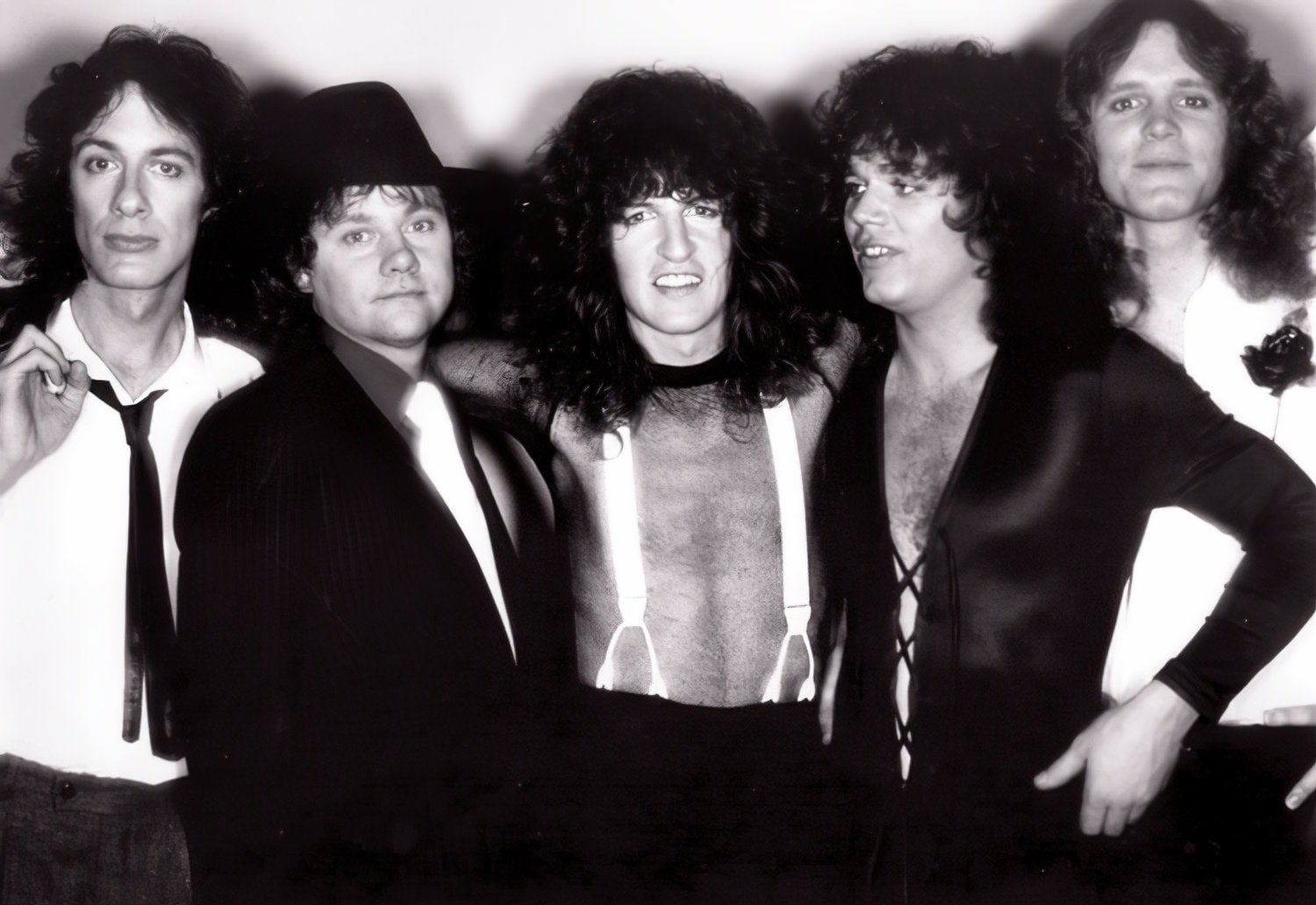
But unlike the latter three, REO has been unable to garner support out of that regionalized base.
It did land a recording contract with Epic Records back in 1971, but six years and seven albums later, it’s still waiting for seemingly overdue popularity, on the east and west coasts.
Despite the fact that the latest album, “You Get What You Play For,” sold 41,000 copies in Kansas City alone during the first three weeks of release, singer/guitarist Kevin Cronin still isn’t satisfied. He’s looking “over the hills.”
“Each of our first six albums sold more than 150,000 copies, but only about three in Los Angeles,” Cronin said during an interview at his recently-acquired Woodland Hills mountain retreat.
“L.A. and New York audiences are more picky,” he continued. “They’re able to choose, and have a right to do so.”
ALSO SEE: Creedence Clearwater Revival was the richest, most successful pop-rock group in the world in 1971
But now, even these more discriminating listeners are beginning to take notice of REO Speedwagon. As of late, it’s received quite a bit of FM airplay, and the latest LP, a live two-record set, entered the Rock World record chart at 160 with a bullet, and Cashbox’s at 186 with a bullet.
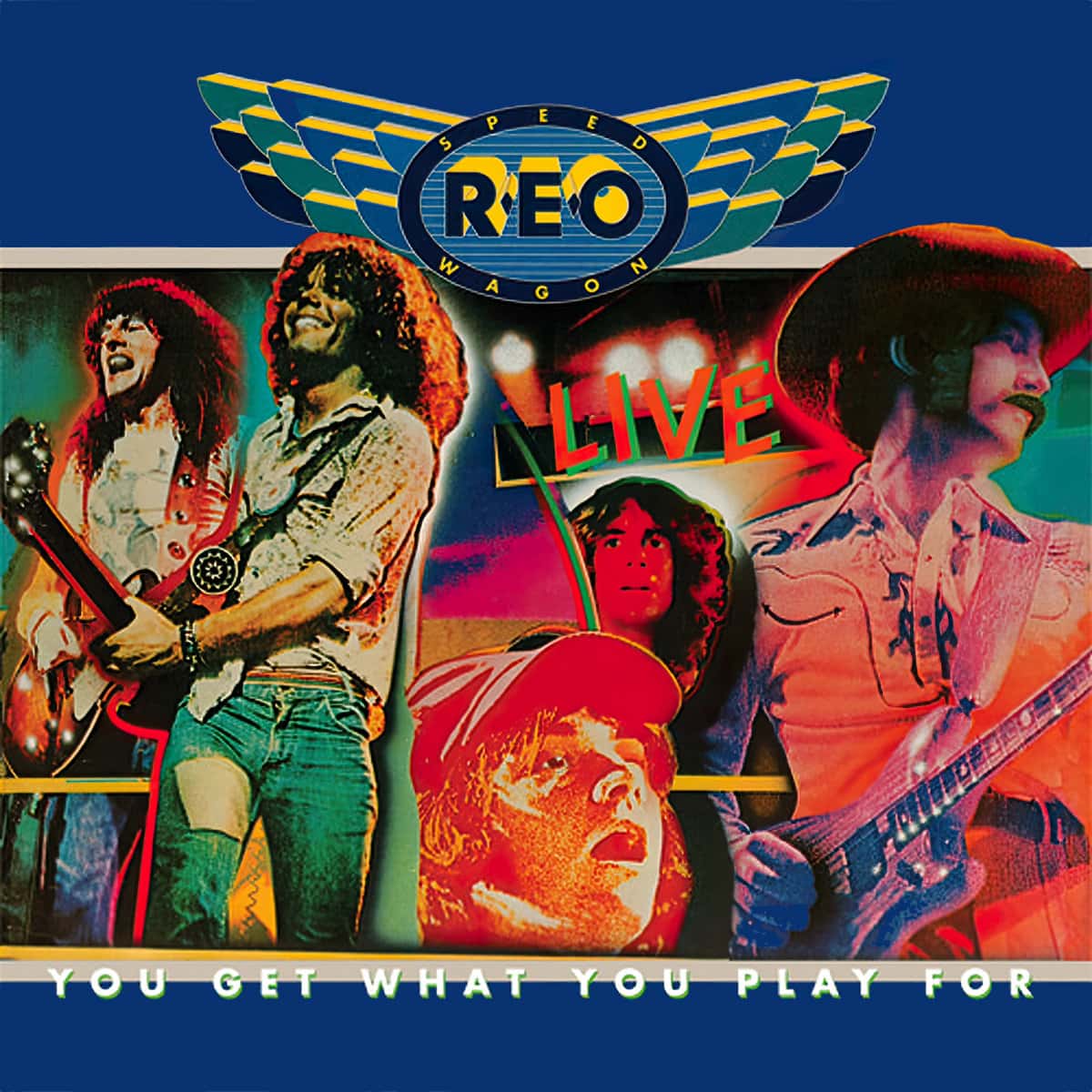
This week — a month and a half later — it’s moved up to 54 with a bullet and 61 with a bullet respectively in those same trade publications.
“The response has been ridiculous,” Cronin said with a smile. “I feel as if it is our first album.”
“And,” he added after a moment’s pause, “I guess it sort of is. It’s the first we’ve done all by ourselves.
“We fired our producer halfway through, and Gary (Richrath) and I took over.”
Richrath is REO’s lead guitarist and along with Cronin the principal creative force behind its music. They are the only two remaining of five original band members.
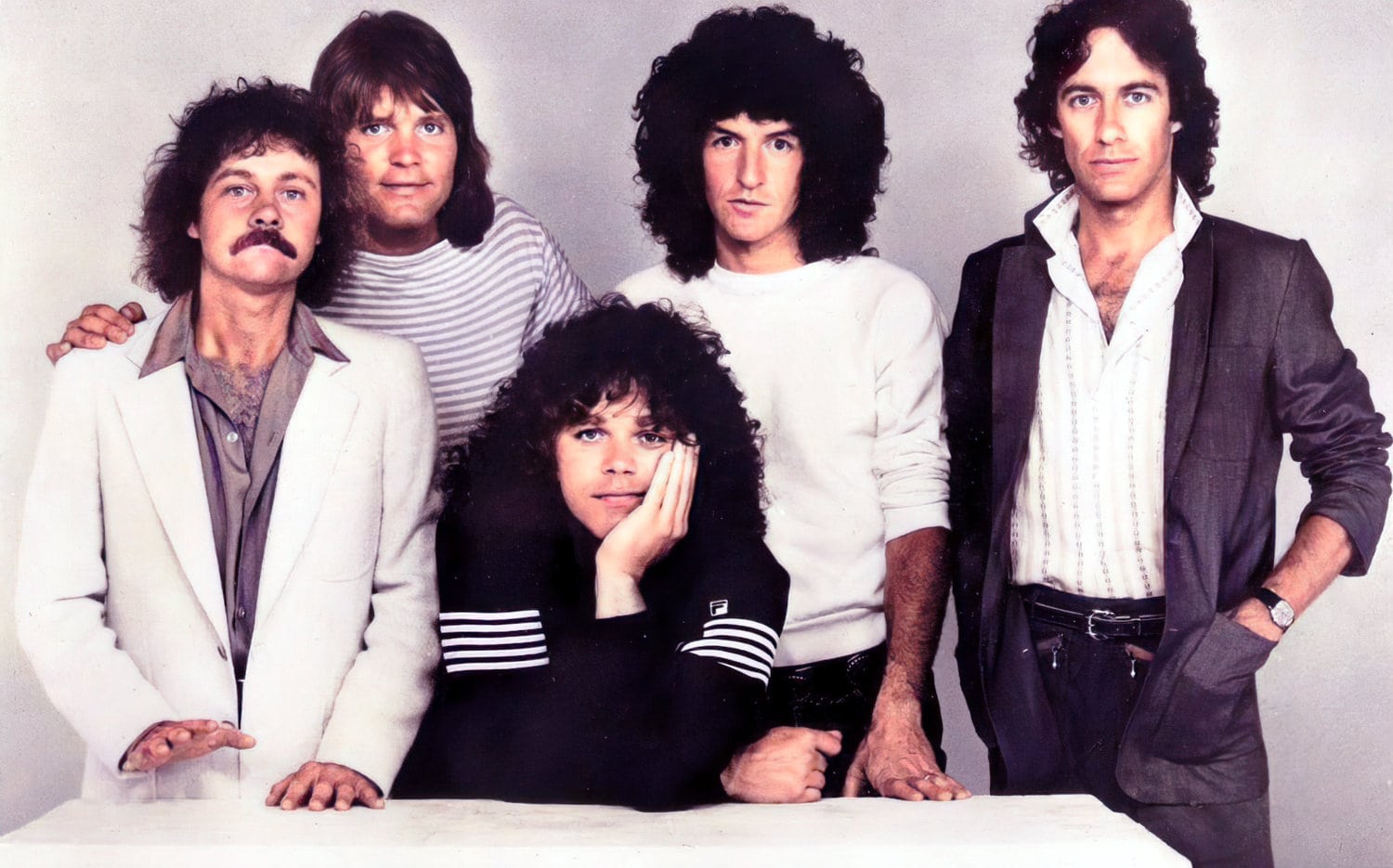
“We’re happy with the sound, because we got what we wanted rather than what some producer wanted.
“Producers will come in and want to make you commercial, or punk, or this or that, but it just isn’t us. We saw this happening, so we took it (the album) into our own hands.
“We’re a high-energy band,” Cronin emphasized, “but our studio recordings didn’t show this, and people want consistency. Instead, we’re lumped in with heavy metal groups, and we’re not like Angel — ‘Oh yeh, another Kiss band.’
“It’s our own fault, I guess,” he continued, “because we lost perspective of our strong points.”
ALSO SEE: Even back in ’75, people knew Bruce Springsteen was something special
Those strengths, according to Cronin, center around the energy REO generates during a live performance. “With the exception of the last, our albums just didn’t capture those energies.”
And this becomes even more important in that REO’s Midwest success is derived primarily from concerts, and they’ve never had such exposure on either coast.
“It’s like a college diploma,” Cronin said. “You need a gold record to get a job.”
Getting gigs in the Midwest, however, is no problem at all. Currently, the group is on what Cronin considers a landmark 52-city tour.
“We usually play as the opening act or as special guests, but this time we’re headlining.”
With the tour titled “Storming the U.S.,” tickets for the opening night show in Milwaukee sold out in two days.

Needless to say, the energetic Cronin was speedier than normal during our 90-minute talk. “Normally I go full speed, and every once in a while take a day to rest, but these past two weeks have been bizarre,” he said with amazement. “There’s so much to do.”
“Gary and I have gotten some new stuff together for the tour, as well as old tunes,” Cronin said, then proceeded to digress. “We’ve been a team through the years,
“For a while, we were almost in competition,” he admitted. “We’d fight over whose tunes would go on an album, how loud each instrument should be, how each instrumental line should be played (as to style and attack). Each of us thought there was just one way to go — his own.”
Cronin went on to explain how he felt the band three years ago to give a solo career a try. “The record company people told me to stick with the band,” he said, then laughed.
“We got back together after a year, and found we had gained a mutual respect. We still get mad at each other sometimes, but we work it out. Actually, for the first time in six years, we both like being in the band.
“Whenever any two people work closely together it brings about a sort of creative tension. This happens in any artistic endeavor. It’s a disagreement, but it isn’t antagonistic.
“Through it, we work off each other, work things out, and improve because of it.
“In fact,” he concluded, “it’s that creative tension that makes REO Speedwagon work.”
AND ABOUT THAT NAME… The original REO Speedwagon vehicles & other classic REO cars and trucks
Success in Rock music requires many long hours, hard work
By Bruce Meyer – Rushville Republican (Indiana) Nov 16, 1977
Horatio Alger never would have made it in rock ‘n’ roll.
In the big business that is rock in its third decade, it takes a lot more than hard work to succeed. It takes luck, for example, and talent and common sense — in no particular order.
For definitive proof, consider REO Speedwagon.
Over the past nine years, ever since coming out of the Midwest college bar circuit, REO have been one of the hardest-working bands anywhere, winning droves of hard-core fans by playing upwards of 300 shows a year and managing to find time between tours to record seven albums.
But it hasn’t helped.
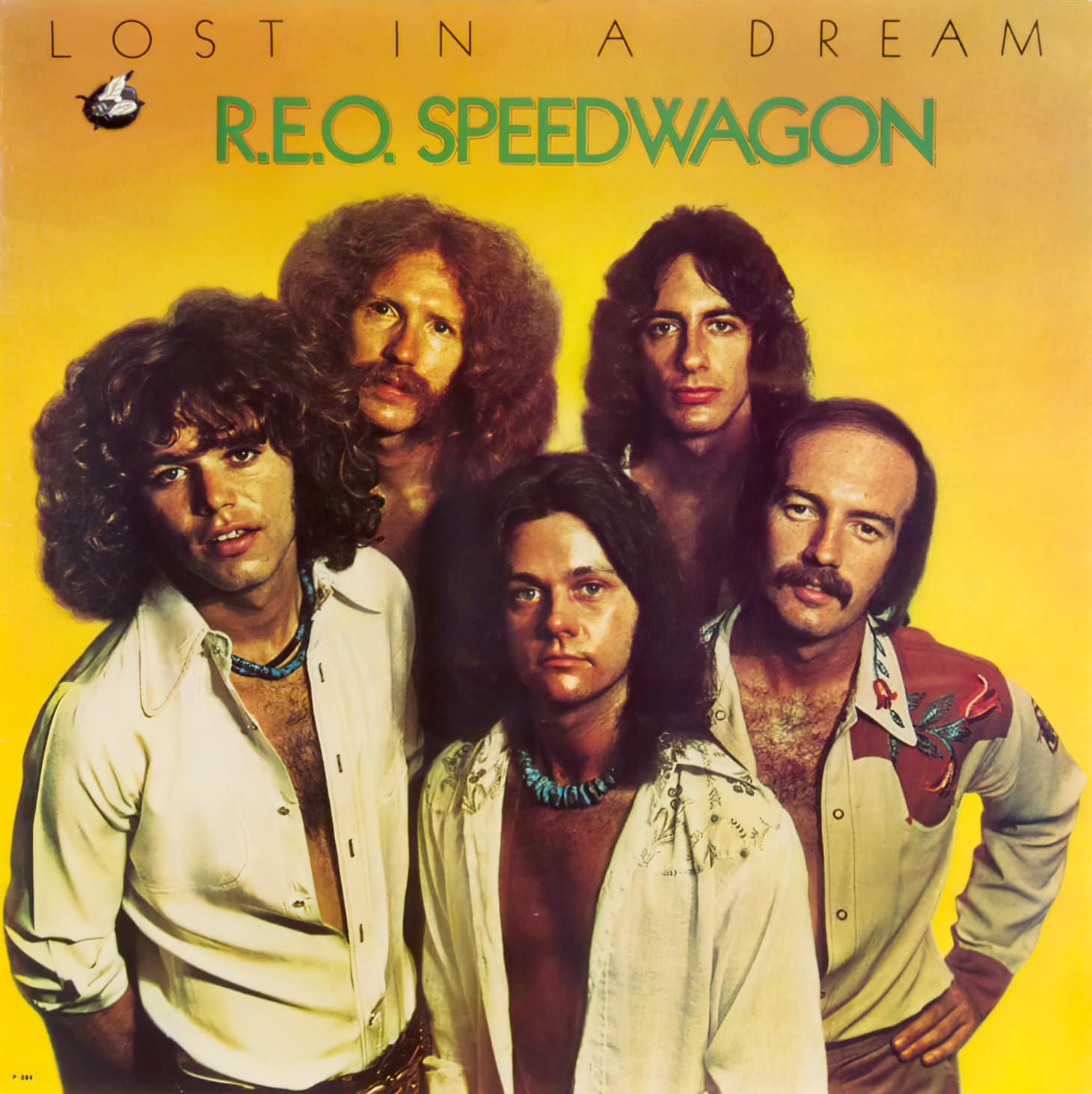
Beyond a convincing demonstration of endurance, REO’s history has been one of repeated disappointments — because they were never able to capture even a hint of their exciting live show in their records.
Each studio album landed with a resounding thud on the national scene.
So until their last LP, a long-overdue live set called “You Get What You Play For,” REO Speedwagon has carried the image of a second-rate boogie band whose most devoted fans would forget them shortly after the third-encore cheers had died away.
But “You Get…” turned out to be the record REO had needed all along — four sides of crackling power that will probably rank as the year’s best live collection.
ALSO SEE: Peter Frampton tells how he finally found success with ‘Frampton Comes Alive!’ (1976)
And now all the doors that seemed to be closing in REO’s face are wide open again — if their eighth album has any guts to it at all.
That next studio collection is the key to REO’s precarious success — and the boys in the band know it better than anyone.
“We know we’ve got to prove ourselves,” says lead singer Kevin Cronin, “and I can’t wait to get that next album out. We’re producing ourselves for the first time and the live album really made us confident in what we’re doing. But we know just because we say we can do it doesn’t mean a thing, until we do it.”
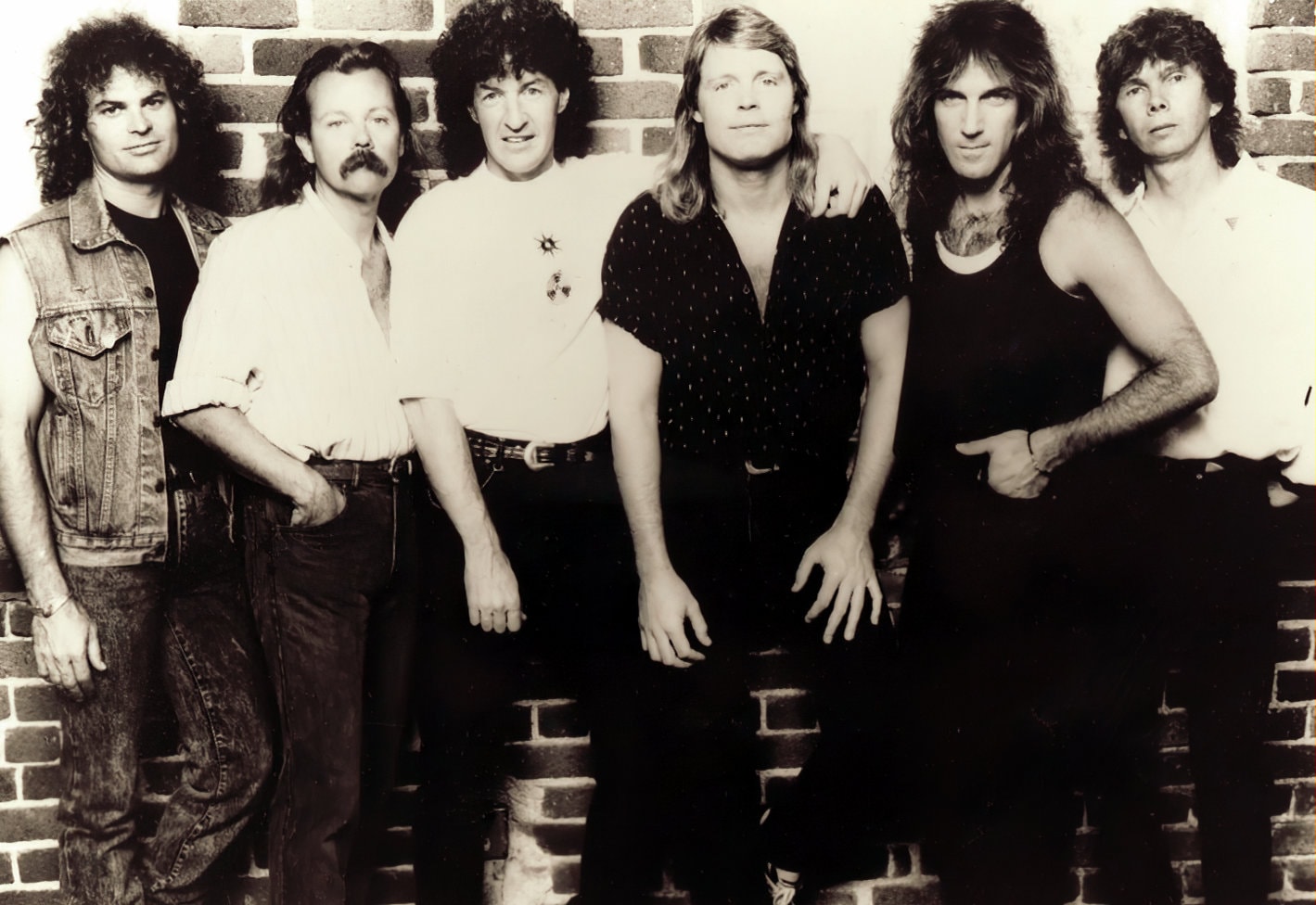
Rarely has a musician uttered a truer statement — and for REO fans and those who would like to be REO fans, it’s going to mean some held breath and crossed fingers over the next few months.
But from all appearances, REO’s next studio LP really will be different — and largely because of a change in the band’s attitude toward making records.
“We’re going in,” says Cronin, ”in a totally different way. Every other album we’ve made… we’d start recording at 10 at night and drag home at 7 the next morning, completely dry. And, well — we’re crazy enough that we don’t need that kind of artificial craziness.
“So now we’re gonna record from noon until 7 o’clock at night, and when we come in, we’re gonna be awake. We’re in tune with ourselves and I trust our taste.
“We’re gonna do it — and it’s gonna be hot.”
- This Certified Refurbished product is tested and certified to look and work like new. The refurbishing process includes functionality testing, basic cleaning, inspection, and repackaging. The product...
- Audio CD – Audiobook
- English (Publication Language)
- Amazon Prime Video (Video on Demand)
- Kevin Cronin, Neal Doughty, Bruce Hall (Actors)
- Joe Thomas (Director)
- Dave Amato, Glen Burtnick, Kevin Cronin (Actors)
- Kenneth Botelho (Director)
- Audience Rating: NR (Not Rated)
- music
- Audio CD – Audiobook
- English (Publication Language)
- Shrink-wrapped
- Audio CD – Audiobook
- English (Publication Language)
Used to success: REO Speedwagon in 1985
Adapted from the Lexington Herald-Leader (Kentucky) January 20, 1985
For REO Speedwagon, 1983 and 1984 were years to recoup from the huge success of its 1980 platinum album. Hi-Infidelity, and its disappointing follow-up, Good Trouble, which sent the group on one of its most exhaustive tours.
“Success changed a lot of things for this group,” said Kevin Cronin in a phone interview last week from Tulsa, Okla. Cronin is REO’s lead vocalist, chief songwriter, song arranger and co-producer.
“To me, we’re still the same five guys who were schlepping around bars in the early ’70s. I guess our problem was that we were trying to carry on like nothing had changed.
“You can’t take success that seriously,” Cronin said. “Your ego gets pumped up a lot at first, but we’re used to it now. We were just doing our best to stay normal as everything for the band was changing.”
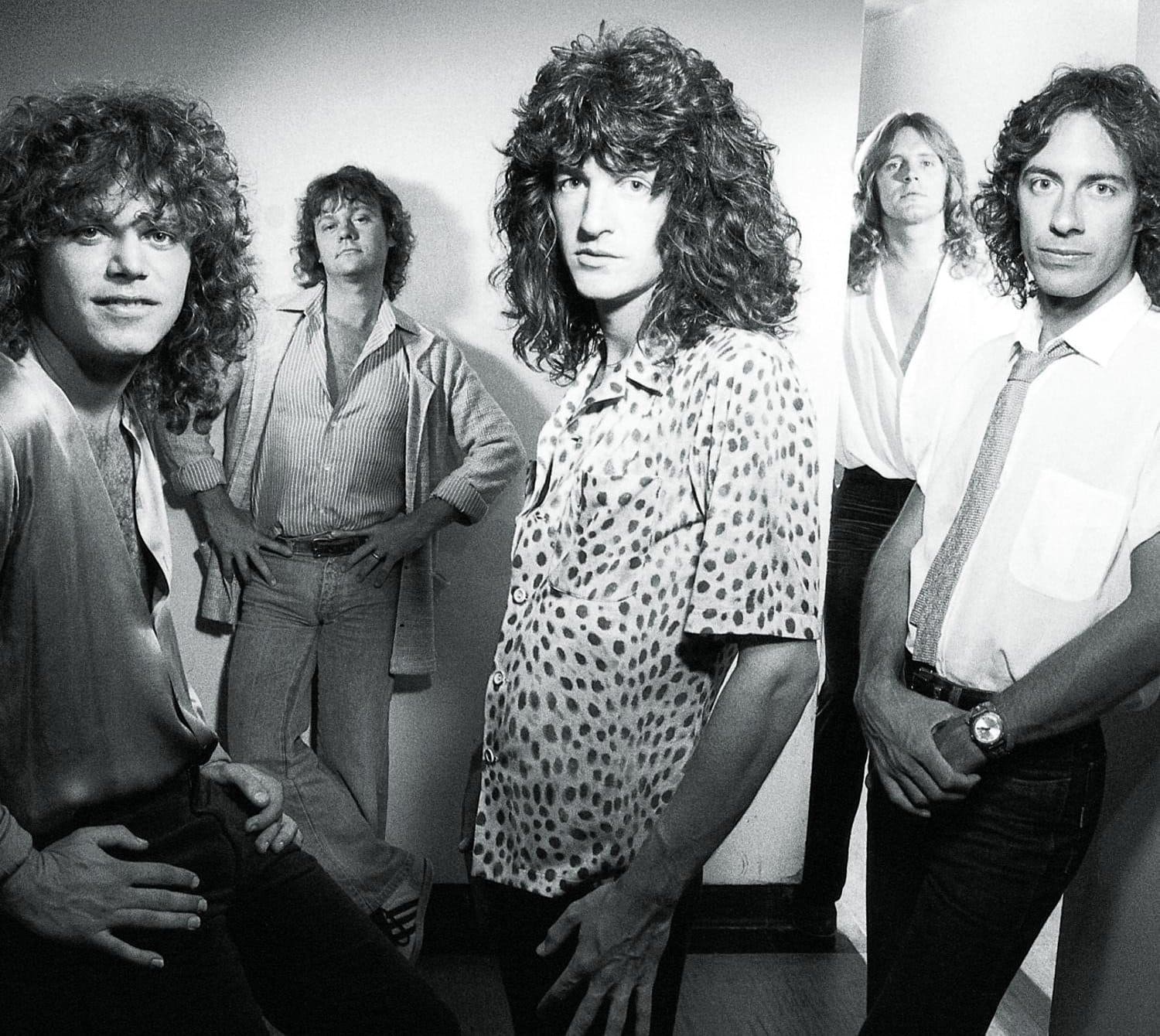
REO has been recording since 1971, but the success that sent Cronin and his band members into such a culture shock came a decade later, when Hi-Infidelity stayed on top of the pop charts for nearly six months, making REO one of the hottest groups of 1981.
ALSO SEE: Rock out with these 30 old Star Hits music magazines from the ’80s
But when Good Trouble came out a year later, the reception was considerably cooler.
“After the Good Trouble tour, we needed a break,” Cronin said. “We really needed one a long time ago. It seemed like we had been working 24 hours a day since Hi-Infidelity had come out, and even after its success, all I could think of was writing new songs. I just needed a mental break.
“So the band got together after the tour, and we decided we weren’t going to make another record until we felt we could.”
The band’s newest album, Wheels Are Turnin’, is bringing REO back to terms with its audience via two singles, a rocker called “I Do’wanna Know” (Cronin’s answer to all of the unsolicited advice he received after REO hit it big) and a ballad, “Can’t Fight This Feeling.”
“This may sound weird after everything else, but this tour is turning out to be our best yet,” Cronin said.

How REO Speedwagon started over, and finally found stardom
Excerpted from The News Tribune (Tacoma, Washington) April 5, 1985
“You know, our audiences are interesting. They’re a partying kind of rock ‘n’ roll audience. But they get as crazy over the slow, romantic ballads as they do over the rock ‘n’ roll songs. I used to think we had to play fast, loud and hard all the time.
The first album the group produced itself was a live album, in 1977, You Get What You Play For. It was the group’s first gold album.
For “You Can Tune a Piano” in 1978, Cronin said, “We had a bunch of songs: ‘Roll with the Changes,’ Time for Me To Fly,’ ‘Blazing Your Own Trail Again,’ ‘Sing To Me,’ and we were cocky about it.
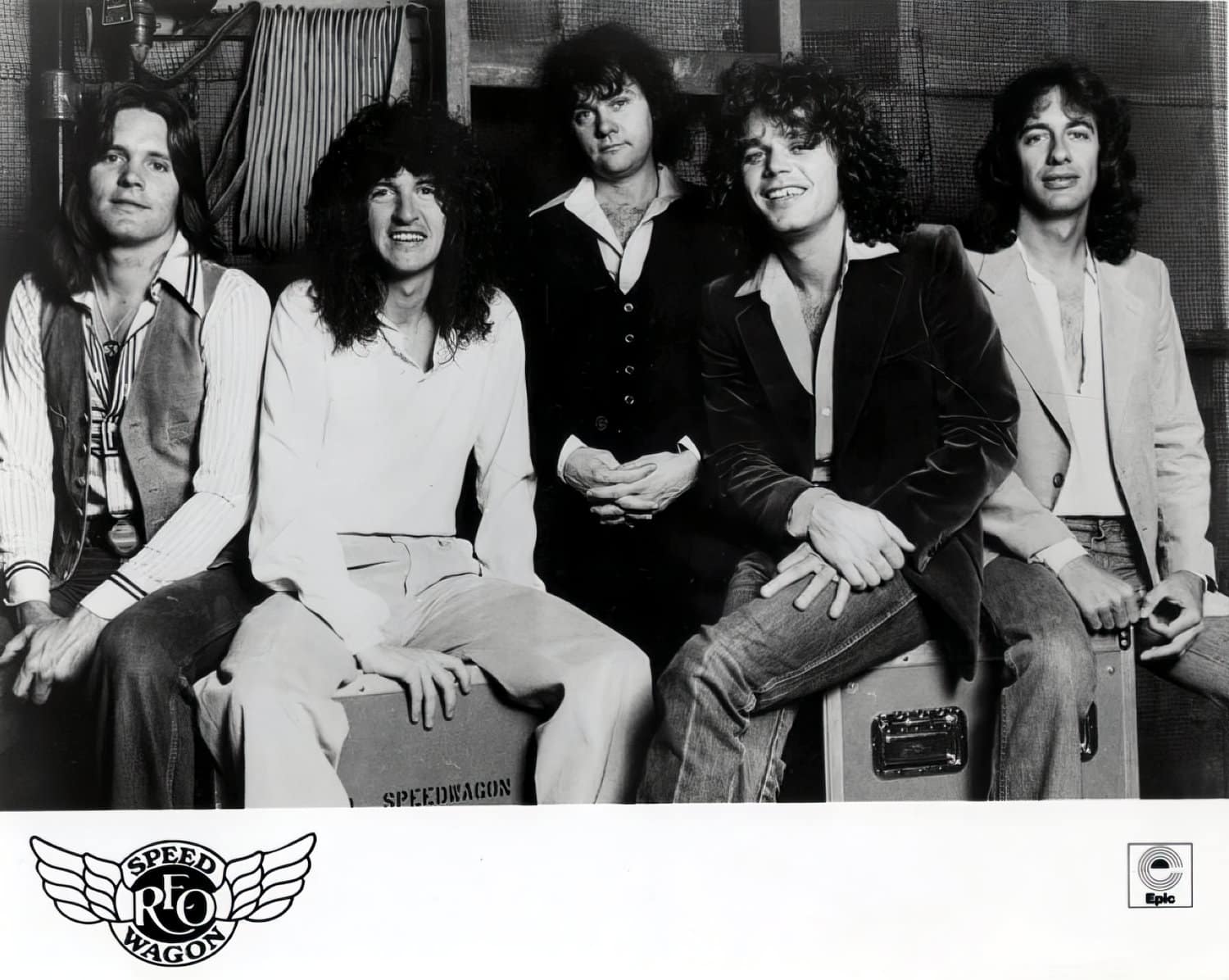
“Basically what we said was, ‘I’m not going to let you have these songs on a record unless we produce them ourselves. Too many good songs in the past have come out sounding like bad records.'”
However, Cronin admitted, after two months, the self-production they were permitted to do didn’t sound right. He called John Boylan, a producer he liked, and asked whether, in that case, he’d start over. Boylan said yes. They started over. That album went platinum.
If there has been a turning point in the band, Cronin said, it was in 1977. “We circled our wagons and started making some changes… We changed everything except the record company.
“We’d always been known as a strong live band. If we were going to make it, a live album might be the way to do it.
“After we did it, Gary and I sat in John’s office and called up radio stations and asked them to play it and see if they got a phone response. It ended up being our first gold record.
“CBS had a big convention in London. They flew us over to get our gold record. We were kids from Cloud Nine. It was great. We couldn’t believe it.”
NOW SEE THIS: Hall & Oates: Looking back at the best-selling musical duo in history


























